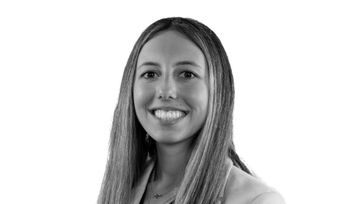UC San Diego prof offers to assign lab groups based on students’ identity
The professor has also taught a Computer Science and Engineering course that satisfies the university’s Diversity, Equity, and Inclusion requirement called “Race, Gender, and Computing.”
A Computer Science and Engineering professor from the University of California San Diego, assigned students a Google Form survey for his Winter 2022 class, CSE 15L: Software Tools and Techniques Laboratory, through his class website.
The assignment includes a section where students select their identity so Professor Joe Gibbs Politz can assign lab groups accordingly. This section was part of a broader Google Form assignment titled “CSE15L W22 Welcome Survey.”
The survey was assigned to “help [the teaching team] organize the course.” The assignment was taken down after Campus Reform reached out to Professor Politz for comment; the Google Form now states it is “no longer accepting responses.” Campus Reform obtained a PDF file of the assignment.
“Sometimes people like to form groups with others that share an aspect of their identity,” read the form. “If you would like us to try to form your lab group with others that share a similar characteristic, please select all of the attributes of your identity or interests that you might like to have in common with others in your group.”
Professor Politz’s assignment further states, “Note that the list below is in no way comprehensive and has some standard categorizations plus some that past students found useful. Feel free to write in other identities or interests we might consider, like ‘first-year student,’ or ‘student athlete,’ in the Other option.”
“We will make a best effort at this, but due to a number of constraints (mostly scheduling) we can’t guarantee anything. We won’t share with students which aspects we used (if any) to create groups.”
The options provided were as follows:
Woman
Non-binary, LGBTQ+
Hispanic/Latinx, Black
Native American
First-generation college student
Transfer student, International student
Parent/non-traditional student
Veteran, Nervous/apprehensive about coding
Any group is fine/I don’t care/Choose not to list any.
[RELATED: EXCLUSIVE: Include LGBTQ ‘Safe Zone’ sticker in syllabus, university tells professors]
One student enrolled in the class, who wished to remain anonymous, spoke to Campus Reform about having to complete such a survey in a Computer Science and Engineering Lab course. The student expressed frustration regarding the damaging effects of professors coddling students, rather than expecting them to be able to work with all their peers—regardless of identity.
“There is a high demand for so-called ‘safe spaces.’ I believe the instructor tried to protect certain identities so that they are not intimidated by other non-minority people or feel alone,” said the student. “But this does not prepare these people for real world software development environments.”
“When you reduce people to only a certain class of society you effectively reduce their networking to only themselves and you remove this [networking] ladder that could otherwise be used to climb the socio-economic hierarchy,” the student added. “In a field like computer science, we need to let people come together so that they can get comfortable and get along with each other despite their identities. It is crucial as this will better prepare them for the actual work environment in the tech industry.”
The student also pointed to an omnipresence of identity politics in the University of California System, stating, “The University of California persistently insists on treating people differently based on their identity, be it mutable or not. This ideology runs rampant in the humanities but is now seeping into the hard sciences that are a purely objective section of academia.”
Two other students in the class also felt that there were real-world negative effects of this professor’s policy of assigning lab groups based on student identity. One student stated, “One drawback is that it leads to… forming groups of almost entirely majority people.”
The other affirmed, “Minority-only lab groups… are missing out on the experience of working with diverse groups. Non-minority groups also miss out on the diversity of ideas afforded by diverse groups.” Both students also wished to remain anonymous.
UCSD student Catherine Entenman says she is disappointed by these professors’ agendas and feels students are missing out on opportunities to grow.
Entenman says she has had similar experiences with her professors and declared, “In such a diverse world, grouping people together by such specific identities limits the range of perspectives they can learn from. Social diversity benefits students because each person brings a unique experience and opinion with them to a discussion.”
“Working with people they may or may not agree with allows students the chance for innovation and growth, something they miss out on when only surrounded by those who are similar to them.”
At UCSD, Professor Politz teaches a variety of Computer Science and Engineering Classes. Along with another professor, he has taught a course called, CSE 194: Race, Gender, and Computing.
According to the UCSD Computer Science and Engineering page for New Undergraduate Course Descriptions, CSE 194 is a course that “explores the challenges of diversity, equity, and inclusion (DEI) in computing and technology, through an introduction to, and analysis of, various social constructs and their impact on not only computing-related organizations, but also the technologies developed and the people affected by them. This course also introduces students to cultural competence in the context of computing.”
[RELATED: Berkeley student newspaper creates ‘Diversity, Equity, and Inclusion’ blog]
This course satisfies UCSD’s Diversity, Equity, and Inclusion requirement. As stated on UCSD’s Undergraduate Education Programs & Committees page, “A knowledge of diversity, equity, and inclusion is required of all candidates for a Bachelor’s degree who begin their studies at UC San Diego in lower-division standing in Fall 2011 or thereafter, or in upper-division standing in Fall 2013 or thereafter.”
Professor Politz and UCSD Jacobs School of Engineering Communications Director, Daniel Kane, did not respond to Campus Reform’s requests for comment.
Follow the author of this article on Twitter: @alliesimon28

